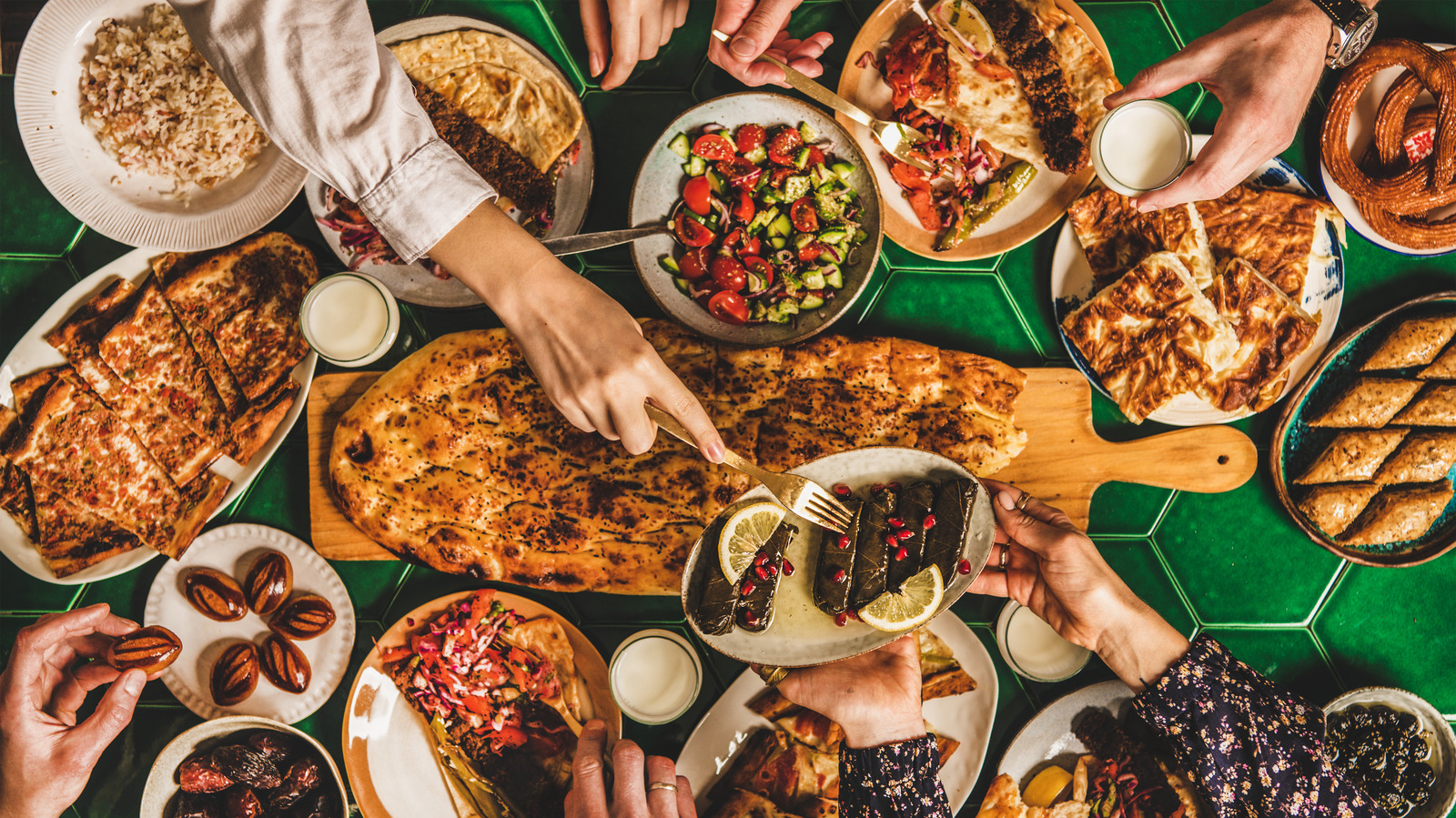
Introduction
The rich tapestry of South Asian cuisine is a testament to the diverse cultural influences that have shaped the region over centuries. Among the many historical forces that left an indelible mark on the culinary landscape, the Islamic dynasties and empires stand out prominently. In this blog, we embark on a journey through the annals of history, exploring how these Islamic rulers influenced the gastronomic delights of present-day India, Pakistan, Afghanistan, Nepal, and Bangladesh.
1. Umayyad Caliphate (661–750 AD)
The Umayyad Caliphate, though primarily centered in the Arab world, played a pivotal role in spreading Islamic culture and culinary traditions across newly conquered territories. The introduction of spices, such as cinnamon, cloves, and saffron, infused a vibrancy into South Asian kitchens.
2. Abbasid Caliphate (750–1258 AD)
Under the Abbasid Caliphate, a golden age of Islamic civilization flourished, bringing advancements in science, art, and cuisine. The exchange of culinary knowledge along trade routes brought Persian influences, introducing flavors like pomegranate, pistachios, and rosewater to South Asian cuisine.
3. Delhi Sultanate (1206–1526 AD)
The Delhi Sultanate, a series of Muslim rulers in North India, marked the beginning of Islamic governance in the Indian subcontinent. Persian-inspired dishes like biryani and kebabs became part of the royal cuisine, later permeating local kitchens.
4. Mughal Empire (1526–1857 AD)
The Mughal Empire stands as a culinary colossus, leaving an enduring legacy on South Asian cuisine. The fusion of Persian, Central Asian, and Indian culinary traditions gave birth to iconic dishes such as Mughlai curry, korma, and the world-renowned biryani. The Mughals also introduced the concept of 'tandoor' cooking, which resulted in delectable bread varieties like naan and roti.
5. Safavid Dynasty (1501–1736 AD):
While the Safavid Dynasty was centered in Persia, its influence extended into Afghanistan. Persian-inspired rice dishes, such as pulao, became integral to Afghan cuisine. The use of herbs and yogurt-based sauces also found their way into the Afghan culinary repertoire.
6. Ottoman Empire (1299–1922 AD)
Though geographically distant, the Ottoman Empire's culinary impact stretched to the Indian subcontinent. The Ottoman influence on desserts, sweets, and pastries is evident in South Asian treats like baklava and various forms of halwa.
7. Bengal Sultanate (14th–16th centuries AD):
The Bengal Sultanate, with its vibrant trade and cultural exchanges, enriched the culinary heritage of Bengal (present-day Bangladesh and West Bengal, India). The use of mustard oil, fish, and rice as staples can be traced back to this era.
8. Afghan Empires (Various)
Afghanistan's culinary identity reflects a unique blend of Persian, Central Asian, and Indian influences. Dishes like qorma, mantu (dumplings), and kebabs showcase this synthesis, with a reliance on aromatic spices and slow-cooking methods.
9. Mughal and Persian Influences in Nepal
While Nepal wasn't directly governed by Islamic dynasties, trade and cultural exchanges introduced Mughal and Persian flavors. The use of aromatic spices and slow-cooked meat dishes, influenced by Mughal cuisine, can be found in Nepalese culinary traditions.
Conclusion
South Asian cuisine is a harmonious blend of diverse influences, with Islamic dynasties and empires playing a central role in shaping its gastronomic identity. The legacy of these rulers lives on in the fragrant biryanis, succulent kebabs, and an array of spice-infused dishes that grace the tables of millions across the Indian subcontinent. As we savor these culinary delights, we are reminded of the historical threads that weave together the intricate fabric of South Asian culture and cuisine.
Go back"Culinary Chronicles: Islamic Dynasties and Empires Shaping the Flavors of South Asia"
Published on December 12, 2023
Share this post
Excerpt
The rich tapestry of South Asian cuisine is a testament to the diverse cultural influences that have shaped the region over centuries. Among the many historical forces that left an indelible mark on the culinary landscape, the Islamic dynasties and empires stand out prominently. In this blog, we embark on a journey through the annals of history, exploring how these Islamic rulers influenced the gastronomic delights of present-day India, Pakistan, Afghanistan, Nepal, and Bangladesh.
About the author
At The Islam Shop, we don't just sell products; we craft experiences that resonate with the essence of Islamic excellence. Our mission transcends mere transactions; we aspire to be the unparalleled leaders in the online Islamic marketplace.
Our commitment is unwavering — to offer you not just a selection, but an expansive array of choices that embody the rich tapestry of Islamic culture. We don't just provide value; we redefine it, ensuring that every purchase is not just a transaction but a journey into the world of quality and significance.
We are more than a seller; we are curators of passion, dedicated to sharing our expertise with you. Our team doesn't just offer advice; we provide insights driven by a genuine passion for Islamic products. We believe that each product tells a story, and it is our mission to make sure that story resonates with you.
The Islam Shop isn't merely a platform; it's an invitation to be intrigued, excited, and inspired. We aim to ignite your curiosity and continually motivate you to embrace and celebrate Islamic products. Our commitment goes beyond selling; it's about fostering a connection, sparking an interest, and creating an enduring bond with every customer.
Step into a world where every click is a step towards enriching your life with Islamic elegance. Join us as we passionately lead the way, shaping the future of online Islamic commerce.
Welcome to The Islam Shop — where choice, value, and passion converge to redefine your Islamic shopping experience.
Elevate your expectations; embrace the extraordinary.
The Islam Shop Team








